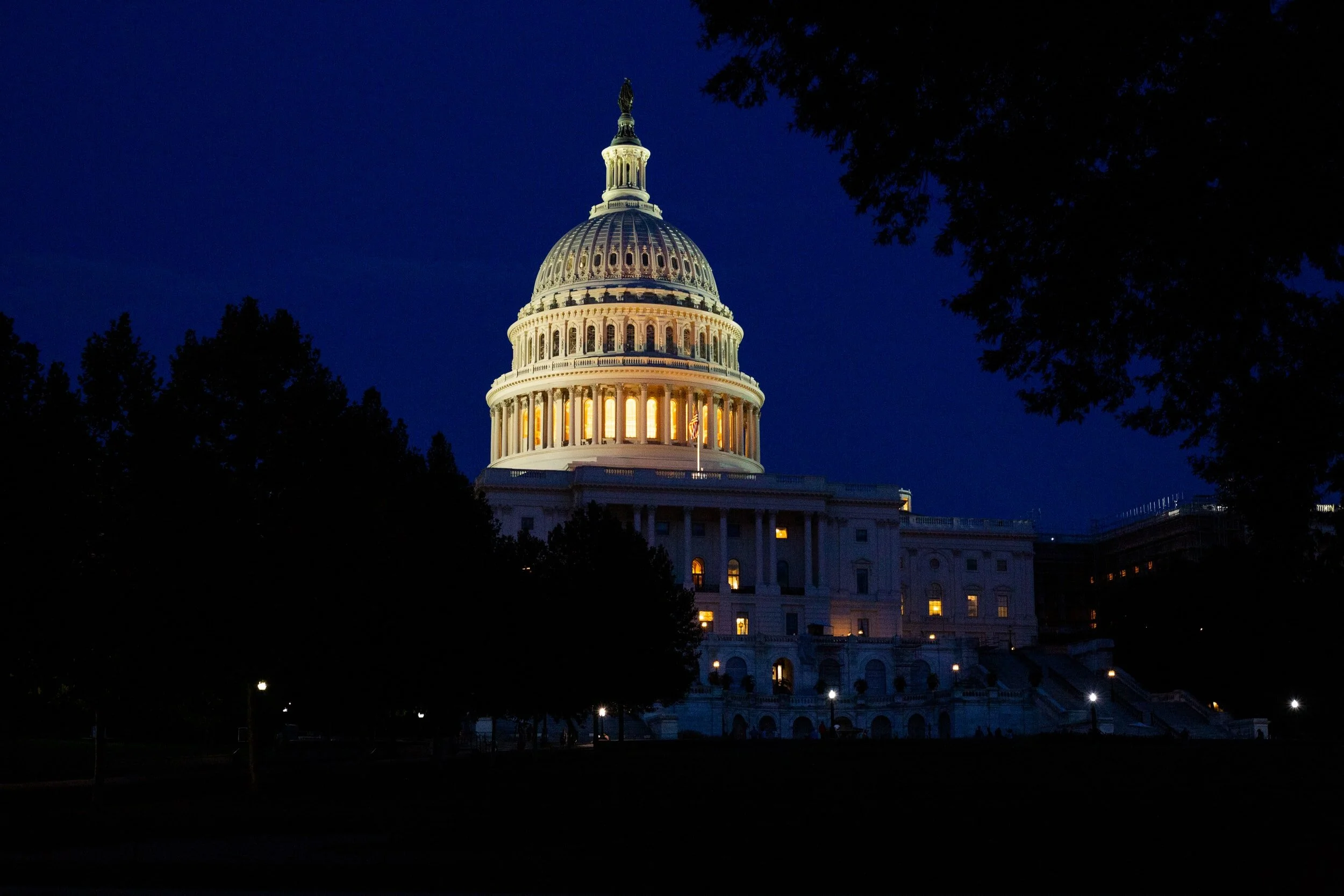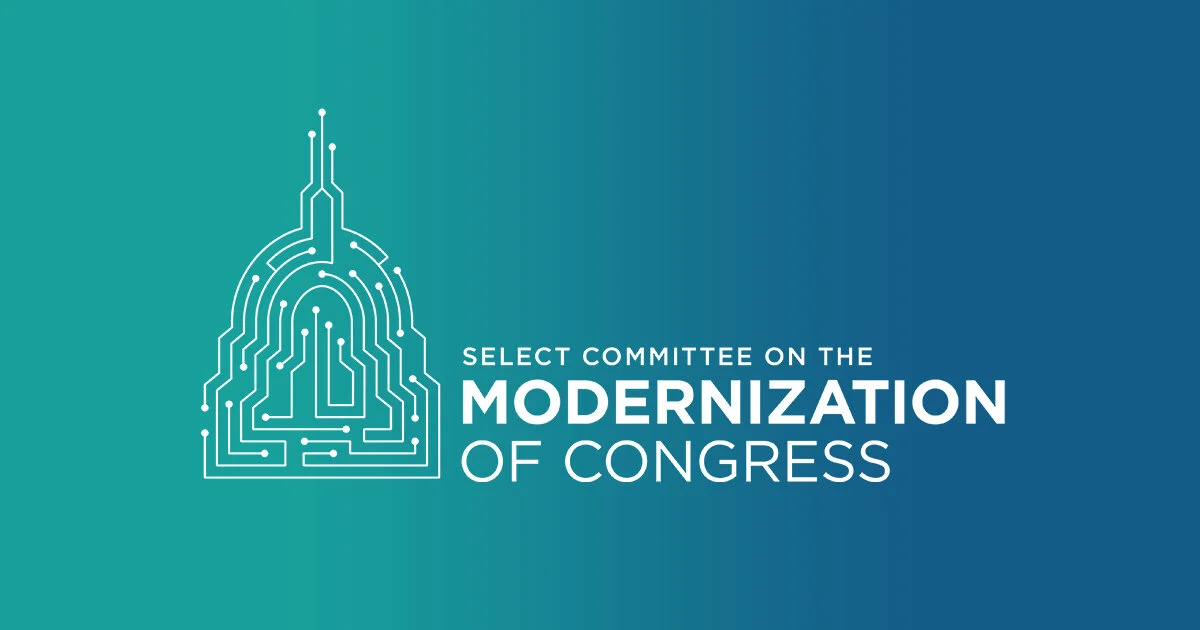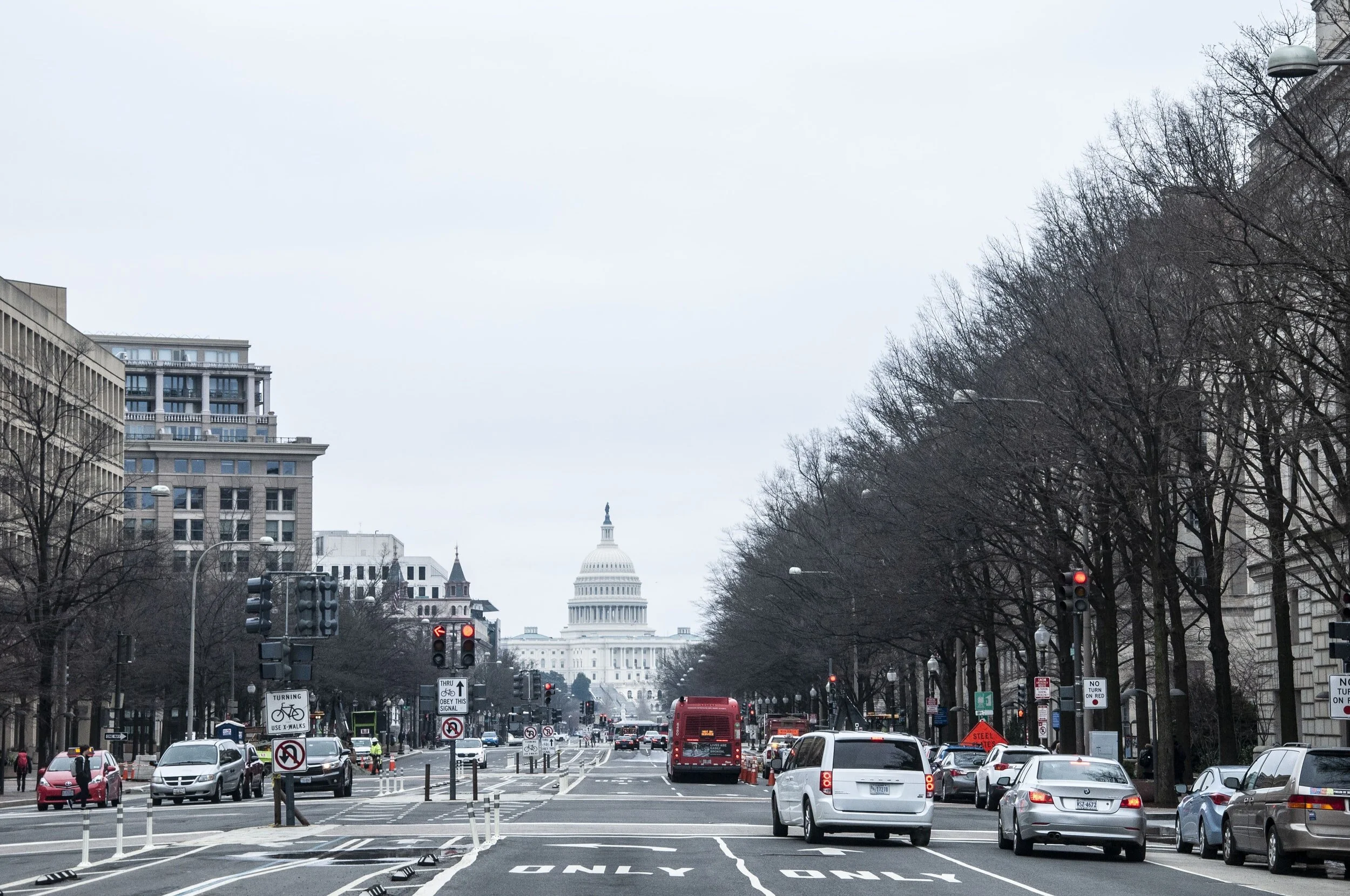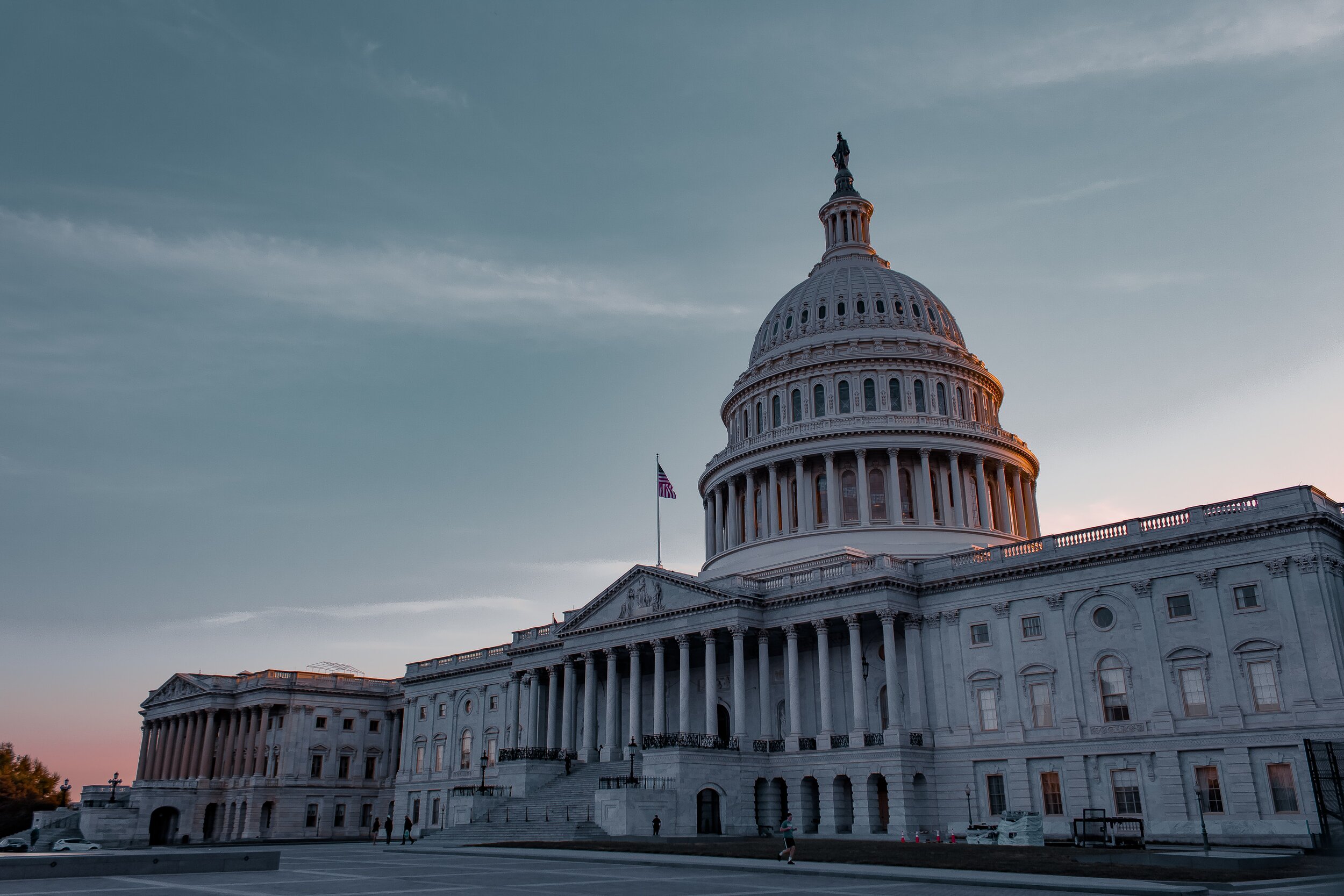For twelve years, I was a foreign correspondent covering technology and authoritarianism regimes. I lived in or reported from China, South and North Korea, Myanmar, Vietnam, Russia, Cambodia and Turkey, where I covered authoritarian politics, civil wars and a genocide, as well as their links to technology.
Travis Moore's Written Testimony before Congress
Meet the Fellows 2021: Dr. Celeste Chamberlain
Meet the Fellows 2021: B Cavello
Where They're Serving: Placements for our 2021 Congressional Innovation Fellows
End of Year Reflection: 2020 Fellow John Yaros
2021 Congressional Innovation Scholars Program Selections Process
This year, we received 277 applications for our 2021 Congressional Innovation Scholars Program. As we begin our review process, we want to share some information about next steps. Due to the COVID-19 pandemic, all interviews will be conducted over video.
Below, you will find a repost of last year’s Fellowship process with a few small tweaks that we made this year for the Scholars Program.
We do our best to live our values as an organization, and primary among those are transparency and inclusion. Accordingly, we want to provide a window into the stages of our fellowship selections process for the 2021 application cycle.
TechCongress works to create pathways into Congress for people that may not ordinarily have a direct route in. For the Congressional Innovation Scholarship, we try to do everything we can to ensure we have an equitable selection process based on the latest research. We screen to make sure no one was left out due to coming from non-traditional backgrounds. We are always examining our processes for places we can do better and collecting feedback so we can continue to learn.
Our process begins very deliberately with anonymous applications. We request people remove their names from their resumes and other materials to prevent ourselves and our selections board from having entry points for unconscious bias to seep in. In fact, if applicants do not follow this step, it results in a slightly lowered resume score.
The overall selections criteria includes: potential for placement in Congressional offices; professional achievements and technical ability; commitment to building a diverse and cross-sector technology policy ecosystem; potential for future growth and career advancement; interpersonal, communication, and “tech-translation” skills; individual plans for incorporating the fellowship experience into specific career goals; and likelihood to stay in Congress after the fellowship ends.
The first round of selections is a review of the hundreds of applications received. Members of the TechCongress team, in addition to some outside reviewers on occasion, review all of the applicants, rating each short essay and resume individually and scoring the overall application as a whole.
The applicants that have demonstrated strong potential on the criteria above advance to our second round, a review by different members of the TechCongress team. The team-- which also reviews applications anonymously-- scores each application and provides a rank-order of the top applicants. The TechCongress team reviews these rankings to make sure we have a group advancing to the next stage that is broadly representative.
Our third round of selections is a round of video interviews, for which 35-40 applicants typically advance. The process is de-anonymized so that we can make contact with applicants to arrange interviews. We have a team of TechCongress staff and advisors interview these candidates. We ask a standardized set of questions in a 20-minute interview to assess the same core criteria listed above. Based on these interviews, we then narrow the field to 15-20 candidates whom we invite to a second interview.
Second interviews last 45-55 minutes, and we ask the same series of questions to everyone. Interviewers are not allowed to discuss applicants until after they have submitted anonymous ratings of the interviews to prevent interviewers from biasing each other. It sometimes happens that clarifications from prior interviews are needed, and so there can be a small round of shorter follow-up interviews. (As we noted above, for 2021 selections all interviews will be conducted via video.)
At this point finalists are selected by the TechCongress team to build a robust cohort of Fellows. Finalists are notified that their references will be checked, and references are checked. It is typically an 8-10 week process from the time applications close until offers are made. Once an offer is made, we ask candidates to respond with a decision within a few days. We try to give scholars at least 6-10 weeks to prepare to begin the program in early June.
Politico's Morning Tech: All eyes on Rosenworcel's first public commission meeting
Politico’s Morning Tech announces the hiring of former TechCongress fellow Anna Lenhart:
Anna Lenhart, a former TechCongress fellow in the office of Rep. David Cicilline, where she supported the House Judiciary antitrust subcommittee’s investigation into tech market power, started Tuesday as senior legislative assistant on the staff of Rep. Lori Trahan (D-Mass.)
How public-interest technologists can build government that works for everyone
Michelle Shevin mentions TechCongress in her op-ed for Fast Company:
TechCongress, which places socially minded technologists as policy advisers to members of Congress, has already contributed expertise that will help policymakers craft meaningful legislation.
How Biden Can Tamp Down Tech Policy Dumpster Fires
Chris Riley, senior fellow of internet governance at the R Street Institute, references TechCongress in his op-ed in Protocol:
The TechCongress program, which places technologists as full-time staff in the House and Senate, has had a huge impact on the legislative process.
Bringing Tech Talent to the Halls of Congress: Q&A with Travis Moore
PIT-UN at New America interviewed TechCongress founder Travis Moore about the program:
Public interest technology practitioners have myriad opportunities to get involved and change the world. One such opportunity—as a TechCongress fellow—takes candidates right to the top, placing them with offices in the United States Congress. Recently, PIT UNiverse editor-in-chief Karen Bannan sat down with the organization’s founder, Travis Moore to discuss what TechCongress is, why it matters, and how people can apply to be part of the next cohort.
San Diego Union Tribune: Lesser-known candidates could shake up tight race to replace Hunter
Info Calls about the 2021 Scholars Program (recordings available here)
Applications are open for the 2021 Congressional Innovation Scholars Program
Announcing Our 2021 Congressional Innovation Fellows
Working in Congress for Social Justice: The TechCongress Innovation Fellowship
ProFellow published an interview with 2019 TechCongress Fellow Emily Paul:
TechCongress is building a 21st-century government with technology talent through its Congressional Innovation Fellowship. For one year, starting in January, Fellows work with TechCongress to choose a placement with a Member of Congress or Congressional Committee and report directly to a senior staffer (like a Chief of Staff or Staff Director). Fellows also develop and produce a fellowship project on an issue of their choosing. Fellows have at least four years of work or postgraduate study.
We enjoyed talking with Emily Paul, a 2019 TechCongress Fellow, to learn about her experience and get some application tips
Meet the Scholars 2020: Genevieve Fried
Meet the CDS Fellows: Alex Prokop
“Over the last five or six years, newly created modern digital service organizations have made government more efficient, more accessible, and more reliable—and we’re just getting started. I joined TechCongress’ Congressional Digital Service Fellowship to help bring this model and practices to the first branch.”
The Congressional Innovation Fellowship Selections Process
AMS Blogs - Our First Branch of Government Needs Science Too
Fellowship and programs developed to place experts from academia, industry, or executive branch entities in Congress include the TechCongress Fellowship.

















